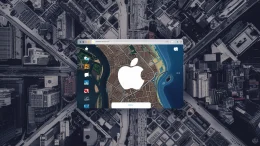Is your cyber life secure? How do you know? Data security is critical more than ever before. If you’re not careful, you could end up victimized by any number of cyberattacks common in today’s world. If other people use your network, not protecting your network puts their devices and data at risk.
Here are 10 strategies to help you secure your digital life.
1. Implement a zero-trust architecture strategy for your business
Zero-trust is exactly what it sounds like. Rather than grant employees and contractors access to your entire network, a zero-trust strategy grants access to company data as needed. In other words, employees are given access only to the areas of the network necessary to do their job.
2. Implement strong network security strategies
Whether you’re running a small business or you’re a solopreneur, you need network security. High-tech network security protects your data from a plethora of breaches and attacks using hardware and software solutions.
A network security strategy typically includes controlled network access, antivirus software, application security, endpoint security, firewalls, and strong analytics. With High-tech security, threats are detected and blocked in real-time. Strong network security will protect your network from common threats including:
- Viruses
- Worms
- Trojans
- Spyware
- Adware
- Ransomware
Cyberattacks are constantly evolving and becoming more dangerous every minute. If you’re storing personal information from your customers, you need strong network protection to prevent that data from being stolen or manipulated.
3. Use a VPN on private and public Wi-Fi networks
Your data is vulnerable when you connect to public Wi-Fi networks. While a VPN won’t give you 100% protection, it’s the best way to mitigate most risks. However, it’s also wise to use a VPN on a private network.
A VPN does two main things: protects your identity/location and encrypts your internet traffic. This comes in handy whether you’re on a public or private network.
Normally, your internet traffic is passed through your internet service provider’s server. This gives your ISP access to all of your browsing history, which means they can hand it over to law enforcement, advertisers, or another third party. When you’re on a public Wi-Fi network, it works the same way – the ISP receives your browsing history.
When using a VPN, your browsing history is encrypted and therefore impossible to read.
Since a VPN encrypts your internet traffic, you’ll be protected from the hackers that like to sit around at coffee shops and hijack other people’s browsing sessions. If a hacker gets access to your computer through a public network, they could install a keystroke logger and get access to your bank account and any other online account you have.
4. Limit the amount of personal information you publish online
Each time you post personal information online, you’re making yourself more vulnerable should you ever become the victim of a data breach. Cybercriminals use individual pieces of data to piece together a full profile of an individual and use that information to commit crimes. For example, a criminal who has your full name and address might search your Facebook account for answers to the security questions to gain access to your online banking account.
Posting bits of information may not seem harmful as you post, but the cumulative effect of posting personal information over a long period of time literally hands criminals the information needed to steal your identity.
Some criminals use identities to open credit cards while others make fake ID cards to obtain loans. Some criminals use stolen identities to rack up utility bills when their own account has been shut off. There are a host of reasons why people steal personal data and the less information you publish, the better.
5. Shred every piece of mail you recycle or throw away
Cybercriminals don’t just look for information online. Sometimes they get information in the physical world by breaking into mailboxes and stealing trash. Yes, cybercriminals resort to stealing trash – and sometimes entire recycle bins – in an attempt to obtain personal data.
Even junk mail can contain personal information you don’t want cybercriminals to have. Sometimes all they need is a phone number or the last 4 digits of your credit card. The only way to ensure cybercriminals don’t get that information from discarded mail is to shred it before you toss it.
If you don’t have a paper shredder, take your mail to a mail store that provides shredding services or cut out your personal information and burn those pieces in a metal trash can. You can also get black permanent markers with a cross-hatch pattern to blackout data.
6. Stop saving your passwords in your browser
Most of the top browsers store your bookmarks and passwords in the cloud rather than on your local machine. This puts all of your login credentials at risk if your browser experiences a data breach.
While you can use password management applications that store your passwords using one main password, your login credentials aren’t entirely safe. If your password application is installed on your local machine it’s safer than in the cloud. However, if your device gets stolen and you haven’t logged out of your password manager, you’re extremely vulnerable.
It’s convenient to save all of your passwords, especially when you use complex passwords on a mobile device, but it’s always safer to enter your password each time. If you don’t want to type in your password each time you log into your accounts, that’s understandable. At the very least, stop saving your password for online financial accounts or accounts where your credit card data is stored (like Amazon).
7. Immediately secure your smart devices
Smart devices usually come with either no password or a factor-generated password printed in your device’s manual. Change – or set – this password immediately before connecting to the internet. If you don’t plan on connecting the smart device to the internet (like a TV, for example), then disable the Wi-Fi entirely.
You should also create a separate Wi-Fi network just for your IoT devices. If someone manages to hack into your device-only network, they won’t have access to your computer or other devices.
8. Mac users: turn Air Drop on/off for each use
For Mac users, it’s a good idea to turn AirDrop on and off for each use. You can set AirDrop to accept file transfers only from trusted devices, but that could be a problem if someone has already compromised your Mac to trust their device.
The safest way to protect your Mac is to manually turn AirDrop on and off for each file transfer you perform. Additionally, if you’re not using Wi-Fi or Bluetooth, turn those features off until you need them.
9. Train contractors you employ, no matter how small their task
Sometimes you just need to hire someone to upload files you don’t have time to manage, or you need someone to perform ten minutes of work on your website. Small tasks can still place you at risk for a cyberattack if the person performing those tasks doesn’t take precautions.
Always train any contractors (and friends) you hire to do quick work for you online. Make sure they aren’t performing the work from unsecured public Wi-Fi and if they must, then make sure they use a VPN.
Be assertive and require their agreement to not store your passwords in their browser. Last, always create a unique account for each contractor and delete or disable the account the moment they’re done with the work.
10. Back up your data regularly using immutable storage
If you fall victim to a ransomware attack, you’ll be glad to have a backup of your data. Instead of paying a ransom and hoping the criminal decrypts your data (most of the time they don’t), you can simply restore your data from a healthy backup.
However, backups are not immune to ransomware. That’s where immutable storage comes into play. Ransomware encrypts data by changing the storage blocks on a drive. Immutable storage allows you to prevent changes to storage blocks for any period of time and you can restore your data to specific recovery points you’ve created.
No matter what kind of storage you use, make sure to create offline backups. Connect your backup device to the internet only long enough to perform the backup and then disconnect the device.
Cybersecurity is critical for 2020 and beyond
Your cybersecurity strategies will make or break your success whether you’re running a full-scale business or you’re just getting started on your own. If you’re not sure how to implement cybersecurity practices, hire an IT security professional to create a security solution best suited to your needs.

















